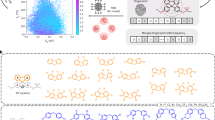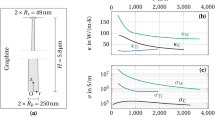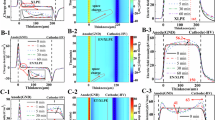Abstract
THE work of Austen and Pelzer1 on the use of recessed specimens for measurement of the electric strength of dielectrics suggested that with specimens of this type experimental verification of the theories of breakdown developed by Frohlich and von Hippel2,3 might be possible. Frohlich's recent extension4 of his theory predicts : (a) that the electric strength should be independent of thickness until the latter approaches the order of the electronic mean free path, when the electric strength should increase with decreasing thickness; and (b) that below a certain critical temperature the electric strength should either increase with temperature or be nearly independent of temperature, while above this critical point the electric strength should decrease with increasing temperature according to the relation , where F is electric strength and T is absolute temperature.
This is a preview of subscription content, access via your institution
Access options
Subscribe to this journal
Receive 51 print issues and online access
$199.00 per year
only $3.90 per issue
Buy this article
- Purchase on SpringerLink
- Instant access to the full article PDF.
USD 39.95
Prices may be subject to local taxes which are calculated during checkout
Similar content being viewed by others
References
Austen and Pelzer, E.R.A. Technical Report No. L/T138 (in the press, J. Inst. Elect. Eng.).
Frohlich, Proc. Roy. Soc., A, 160, 230 (1937): A, 172, 94 (1939).
Von Hippel, J. App. Phys., 8, 815 (1937).
Frohlich, Proc. Roy. Soc., in the press.
Author information
Authors and Affiliations
Rights and permissions
About this article
Cite this article
OAKES, W. Intrinsic Electric Strength of Polythene. Nature 159, 29–30 (1947). https://doi.org/10.1038/159029a0
Issue date:
DOI: https://doi.org/10.1038/159029a0



